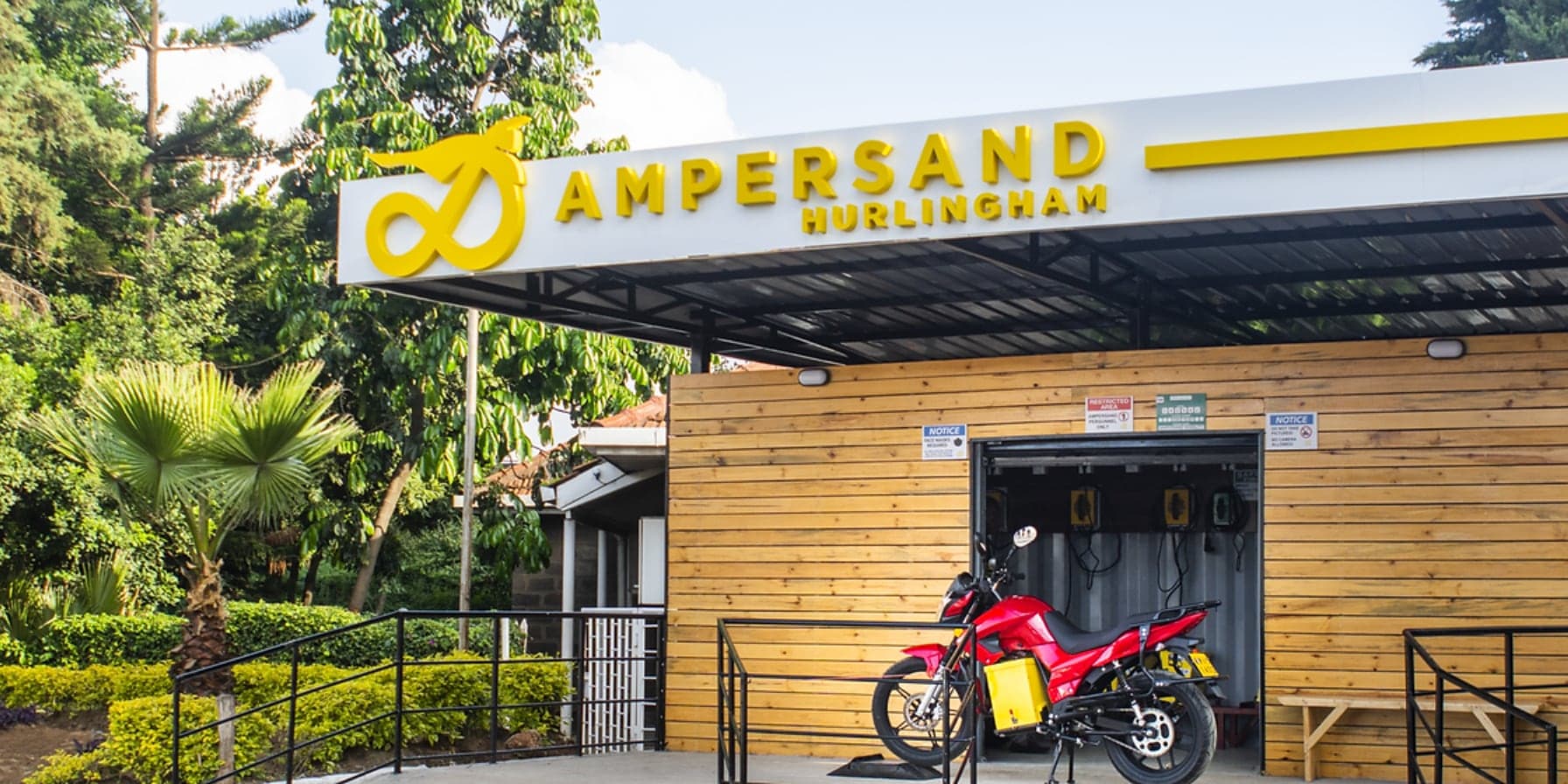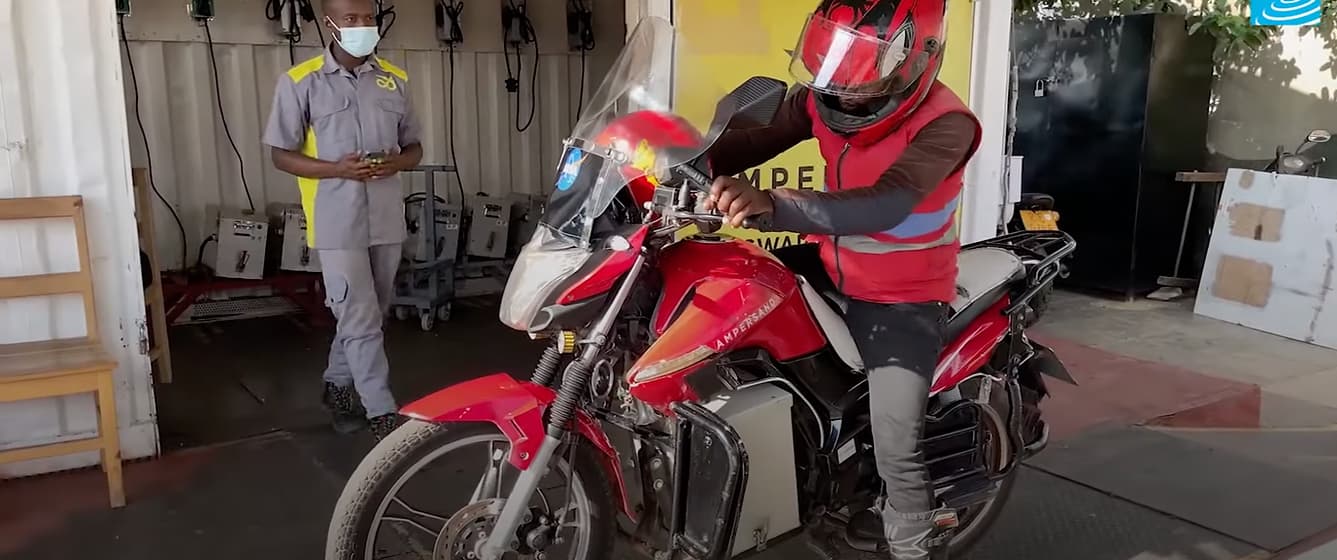
Electric motorcycles are likely not the first thing that comes to mind when thinking of BYD, the world’s leading electric car maker. But thanks to a new agreement, the company’s batteries are heading to Africa, where they’ll be used in Ampersand’s electric motorcycles.
Ampersand is one of several leading electric motorcycle makers in Africa, adding to a growing boom of two-wheeled EV production on the continent.
The company, which currently operates in Rwanda and Kenya, is making significant strides in the African electric vehicle industry. The company focuses on creating zero-emission electric motorcycles that offer an affordable and sustainable alternative to traditional internal combustion engine bikes, which are prevalent across the continent. Ampersand’s innovative approach addresses environmental concerns and provides practical solutions for the millions of motorcycle taxi riders who rely on these vehicles for their livelihood.
Since its inception in 2016, Ampersand has built the largest electric motorcycle fleet in East Africa. Their current fleet of thousands of electric motorcycles has demonstrated the significant benefits of electrification to the local population, including cost savings on fuel and maintenance, improved air quality, and enhanced public health. But if the company is expecting to reach its goal of surpassing 10,000 electric motorcycles produced by the end of this year, it’s going to need a lot more batteries. And that’s where BYD comes in.
The two companies just announced the signing of a Memorandum of Understanding that will see Ampersand purchase BYD’s battery cells to produce around 40,000 electric motorcycles by the end of 2026.

Motorcycle taxis, commonly known as “boda bodas” in East Africa, are a ubiquitous and vital mode of transportation in Africa. They play a crucial role in the daily commute of millions of people, particularly in urban areas where traffic congestion is a significant issue.
This form of transport is popular for its affordability and ease of navigating through dense traffic. It also serves as a primary source of income for many motorcycle riders. The motorcycle taxi industry provides employment to millions, offering a viable economic opportunity in regions with high unemployment rates. The prevalence of these taxis highlights their importance in facilitating mobility, supporting livelihoods, and driving local economies across Africa.
However, the rising cost of fuel and the heavy maintenance load of combustion engine motorcycles has long been a difficulty faced by the industry, and electric motorcycles have sprung up in the last several years as a prudent alternative.
BYD’s lithium iron phosphate battery cells are particularly interesting to Ampersand for its motorcycles thanks to their track record for safety in the chemistry and much longer lifespan, both of which will be critical to commercial motorcycle taxi drivers that use Ampersand’s bikes.
The move comes as BYD has positioned itself as a major battery supplier for other brands, including a recent deal to supply Ford and GM with batteries for their electric vehicles.

via: CleanTechnica
- SEO Powered Content & PR Distribution. Get Amplified Today.
- PlatoData.Network Vertical Generative Ai. Empower Yourself. Access Here.
- PlatoAiStream. Web3 Intelligence. Knowledge Amplified. Access Here.
- PlatoESG. Carbon, CleanTech, Energy, Environment, Solar, Waste Management. Access Here.
- PlatoHealth. Biotech and Clinical Trials Intelligence. Access Here.
- Source: https://electrek.co/2024/06/19/how-byds-ev-batteries-will-soon-power-up-tens-of-thousands-of-electric-motorcycles/
